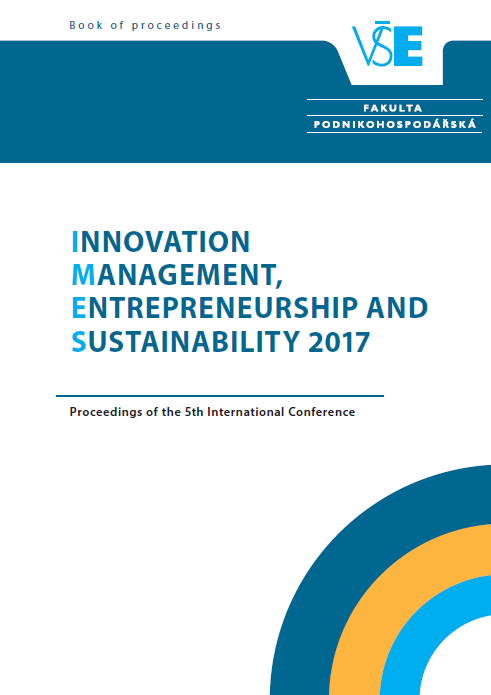The Role of Organizational Culture in the Process Reorientation of the Company
The Role of Organizational Culture in the Process Reorientation of the Company
Author(s): Natalia Potoczek, Anna Ujwary-Gil
Subject(s): Politics / Political Sciences, Social Sciences, Economy
Published by: Vysoká škola ekonomická v Praze
Keywords: Organizational culture; Process orientation; Human Resource Management
Summary/Abstract: Purpose: This paper discusses and investigates the role of the organizational culture in the process reorientation of the organization. Seeing that a special role in the formation of the process culture is attributed to the supplementary processes in the field of Human Resource Management (HRM), this paper focuses on the role of HR-processes that deliver value to all employees in the organization. According to the authors, the designing of HR-processes cannot differ from standards of designing the business processes. The perspective of dynamics of the organizational culture and its importance in process management is regarded as the key aspect of the discussion.Design/methodology/approach: The paper is based on case studies of Polish companies. The study used analysis of company documents and descriptions of internal processes. The paper describes examples of two Polish companies: Poczta Polska S.A. and Azoty S.A.; being organized according to processes, including HR-processes, their activity contributed to the effective restructuring in the first case and to strong expansion and development in the second one. To identify the elements of process culture that shows the development of a process culture, among others, the results of the research done on process culture by von Brocke and Sinnl (2011) were used.Findings: The empirical insights show that the basis for the formation of the process organization culture is the creation of an internal mechanism that provides systemic support of the development of culture promoting the values that bind employees together in the performance of their mutual tasks. The transparent architecture of processes, roles and relationships between processes allow members of the organization to act more efficiently, even if their organization is territorially dispersed. Finally, it can be concluded that the process-oriented culture can support any organized, collective and goal-oriented action.Research/practical implications: The paper includes implications for the development of a strong corporate culture supporting organizational roles and process structure. Process orientation should promote greater flexibility in the organization and quickly adapt changes in the environment and in particular to customer expectations.Originality/value: This paper fulfils an identified need to study how as the process reorientation of the company may be supported by organizational culture.
Book: Innovation Management, Entrepreneurship and Sustainability (IMES 2017)
- Page Range: 749-761
- Page Count: 12
- Publication Year: 2017
- Language: English
- Content File-PDF

